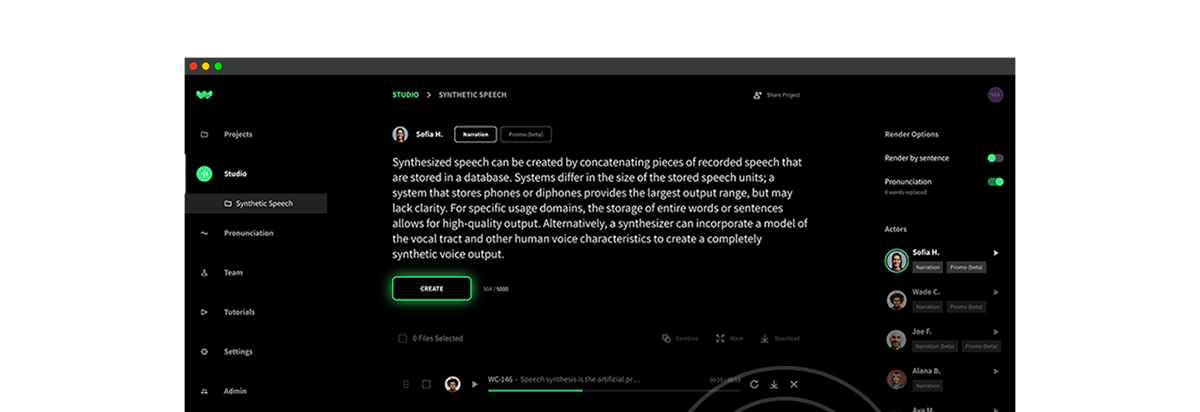More and more, the tech community is talking about Generative AI. But what is the business case for it, specifically for Generative AI Voice? And what is the best way
If you’re looking for the best text-to-speech API available, you’ve probably heard some REALLY bad AI voices. In the past, synthetic voice technology delivered robotic, rigid, and sometimes comical sounding
As Generative AI continues to make news, leaders in the industry map out the frontrunners to watch. More and more categories emerge, and Conversational AI is the latest area to
We all know that we retain information better when it is presented in a variety of formats. But, how exactly can voice enhance that experience? Risa Arin is an expert in
What is the next iteration of lifelike AI voice? Are we pricing and packaging our tools the best way? How should we grow the team for our changing needs? We
How do you know when a brand chooses the perfect audio? That’s the catch—you might not. Quality audio doesn’t call attention to itself; when music, background sound, or a narrator’s
As Director of Educational Programs for Snowflake, the Data Cloud company, Nick Goodman is responsible for an impressive library of customer empowerment resources. With multiple educational products to produce and
What are differentiated listening experiences and how do they translate to how customers think, feel, and behave? Examples of immersive brand strategies are all around us, but those doing it

© WellSaid, Inc. 2024
All rights reserved.